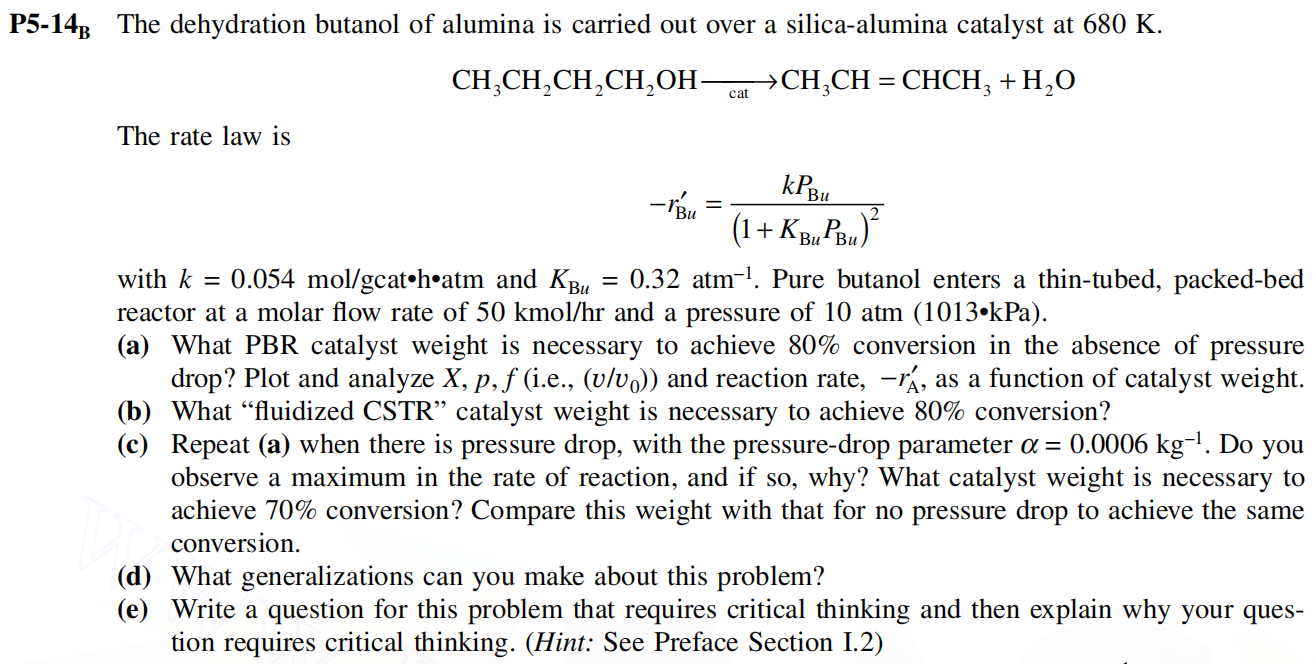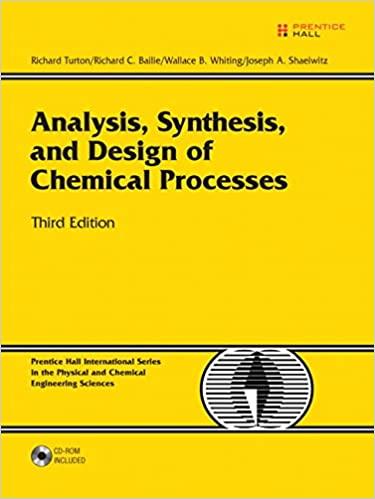Answered step by step
Verified Expert Solution
Question
1 Approved Answer
Please provide step-by-step calculation. The dehydration butanol of alumina is carried out over a silica-alumina catalyst at 680 K. CH3CH2CH2CH2OHcatCH3CH=CHCH3+H2O The rate law is rBu=(1+KBuPBu)2kPBu
Please provide step-by-step calculation.
The dehydration butanol of alumina is carried out over a silica-alumina catalyst at 680 K.

Step by Step Solution
There are 3 Steps involved in it
Step: 1

Get Instant Access to Expert-Tailored Solutions
See step-by-step solutions with expert insights and AI powered tools for academic success
Step: 2

Step: 3

Ace Your Homework with AI
Get the answers you need in no time with our AI-driven, step-by-step assistance
Get Started


